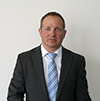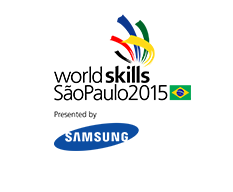15 August 2015: Skills Development Initiatives
Day at a glance:
| Event | Host | Times | |
| Morning session | Seminars on Countries Approaches to Skills Excellence and Development | WorldSkills International | 09:00-12:40 |
Morning Session
SEMINARS ON COUNTRIES APPROACHES TO SKILLS EXCELLENCE AND DEVELOPMENT
Location: Elis Regina Auditorium - Convention Palace
Session 1: United Kingdom - WorldSkills London 2011 Legacy and beyond
Following WorldSkills London 2011, the UK supported a series of skills competition development projects aimed especially at improving the profile and uptake of vocational skills training and raising standards. This session will explain how the UK has used the projects to identify and develop the many benefits which participation in skills competitions bring, for individuals, for businesses, for education institutions and for the wider economy. The projects have been conducted by experts with excellent knowledge of skills competitions, including Oxford University and the national Association of Colleges and combine rigorous research with practical application.
Session 1 speakers:

Susan James Relly, Deputy Director of the Skills, Knowledge and Organisational Performance (SKOPE) research centre
Dr Susan James Relly is the Deputy Director of the Skills, Knowledge and Organisational Performance (SKOPE) research centre and Director of Doctoral Research in the Department of Education, University of Oxford. Susan’s entire career has been in education; she taught in secondary schools in Australia and England before starting her academic career. Susan completed a B.Ed at the Queensland University of Technology, Australia and read for a M.Sc in Comparative and International Education and a D.Phil in Education at the University of Oxford. Her research interests include Vocational Education and Training (VET) systems and policy; vocational excellence; apprenticeship; work-based learning; on-the-job and off-the-job training; teaching and learning in FE; and social mobility. She has published widely on these topics in journals and books.

Christine Doubleday, Interim Director of Education and Development
Christine is currently working for Find a Future, heading up the Education and Development Directorate. She has worked in the education sector for over 30 years in the U.K. and internationally. Christine has worked with Government supporting the development of education policy as well as putting that policy into practice on the front line. Her particular interest is in widening participation and enhancing aspiration of those at risk of missing out on the power of education. Christine’s career began in community and adult education which fuelled her passion for good career education and guidance. Christine has a Master’s degree in Educational Management from the University of Warwick and a post graduate Diploma in Careers Guidance from Canterbury Christchurch University.
Session 2: Automotive Training for Small and Medium Enterprises (SMEs) in Hong Kong
The presentation will highlight the practical skills training services provided by the Pro-Act Training and Development Centre (automobile) and how the Centre can help meet various industry-specific needs of SMEs in Hong Kong. The topic will be further illustrated with recent craftsman training services offered to the automobile industry, supporting practitioners' lifelong professional development, and leading to "Mastery for Success", which in turn helps satisfy the industry workforce requirements and sharpen competitiveness of the SMEs in Hong Kong.
Session 2 speaker:
Alan Tang, Project Manager (Engineering Discipline), Vocational Training Council
Dr Tang is an experienced lecturer and manager, with over 20 years in vocational education and engineering research environments. He is currently responsible for the academic and administrative support, with a leadership role in transport and automotive technology area, to the Engineering Discipline development under the Vocational Training Council.
He has published over 30 papers, in journals and international conferences, with topics ranging from engineering design, vocational education to engineering programme development. When the Qualifications Framework was first developed in Hong Kong, Dr Tang was involved in the Electrical and Mechanical (E&M) Services sector, being one of the professional writers to develop the Specification of Competency Standards for the E&M trades.
Session 3: Switzerland - Future international challenges in technical and professional education and training (VPET)
Description: What do we know? What should we expect? What could we share? The seminar’s goal is not only to identify general future challenges in vocational and professional education and training (VPET) for learners, companies, and society. After presenting the Swiss perspective on international trends, challenges, and possible solutions in VPET, participants are also invited to share their expectations and country specific views. By discussing good practices and innovative measures, this seminar will inspire you to rethink one’s point of view and to foster the international dialogue on promising concepts to meet different future challenges in VPET. Do not only copy and paste successful models, transfer the spirit!
Session 3 speakers:

Therese Steffen Gerber is Head of the Division “Cooperation in Education” at the Swiss State Secretariat for Education, Research and Innovation (SERI).
Dr Therese Steffen Gerber is Head of the Division ‘Cooperation in Education’ at the Swiss State Secretariat for Education, Research, and Innovation (SERI). SERI is the federal government's specialized agency for national and international matters concerning education, research, and innovation policy within the Federal Department of Economic Affairs, Education and Research (EAER), Switzerland. Previously Dr Steffen Gerber worked as policy and scientific advisor and author at several national and international institutions, for instance the Dutch-Flemish governmental accreditation institution NVAO in The Hague/NL, the Swiss centre of accreditation and quality assurance in higher education, the re-search project of the Diplomatic Documents of Switzerland (DDS) and the historic lexicon of Switzer-land. Dr Therese Steffen Gerber is a historian holding a PhD of the University of Berne, Switzerland.

Jean-Pascal Lüthi is Vice-director and Head of the Division “Upper-Secondary Education” at the Swiss State Secretariat for Education, Research and Innovation (SERI)
Mr. Jean-Pascal Lüthi is Vice-director and Head of the Division ‘Upper-Secondary Education’ at the Swiss State Secretariat for Education, Research, and Innovation (SERI). SERI is the federal govern-ment's specialised agency for national and international matters concerning education, research and innovation policy within the Federal Department of Economic Affairs, Education and Research (EAER), Switzerland. Previously Mr. Lüthi was head of several cantonal institutions, for instance the Canton of Bern and the VET School St-Imier, and he worked as engineer and manager at K-Tron-Soder.
Session 4: Finland - Utilizing Skills Competitions in Developing Technical and Vocational Education and Training to meet Future Challenges
Description: Finland has a long history in utilizing skills competitions to develop VET. The achieved results are mainly based on a comprehensive and integrated approach: skills competitions are linked with the processes of VET on all levels, from VET policy level to vocational colleges. This approach also requires continuous dialogue with all the stakeholders involved. As the exchange of practices and ideas is extremely important, this session has been constructed based on dialogue. In addition to the two main speakers, there are two commentators representing the Finnish industry and VET organizers. The audience is also encouraged to share their own experience.
Session 4 speakers:

Mika Tammilehto, PhD - Director of Vocational Education and Training, Ministry of Education and Culture
Mika Tammilehto has worked in the Ministry of Education and Culture since 2001. He is currently the Director for Vocational Education and Training. Vocational Education Division deals with matters relating to vocational education policy, initial VET, preparation of legislation and financing of VET, steering and evaluation of activities in the field, preparation of budgets and the Ministry’s action and economic plans, authorizations to provide VET, qualifications structures, student selection criteria, worked-based training and international cooperation in VET.

Seija Mahlamäki-Kultanen, Dean in the school of professional Teacher Education in Häme University of Applied Sciences, HAMK
Kultanen leads also the Finnish Academy of Skills Excellence (FASE) hosted by HAMK. FASE aims to promote vocational excellence in skills through education, training and research. In practice FASE produces research data on skills excellence, organizes teacher training and development projects as well as coaches skills competition actors.
During her career Seija Mahlamäki-Kultanen has published more than hundred research publications on vocational and professional learning and training. Her career consists of Working in VET practice, development, evaluation and research. She is also a member of the Board of Skills Finland.
